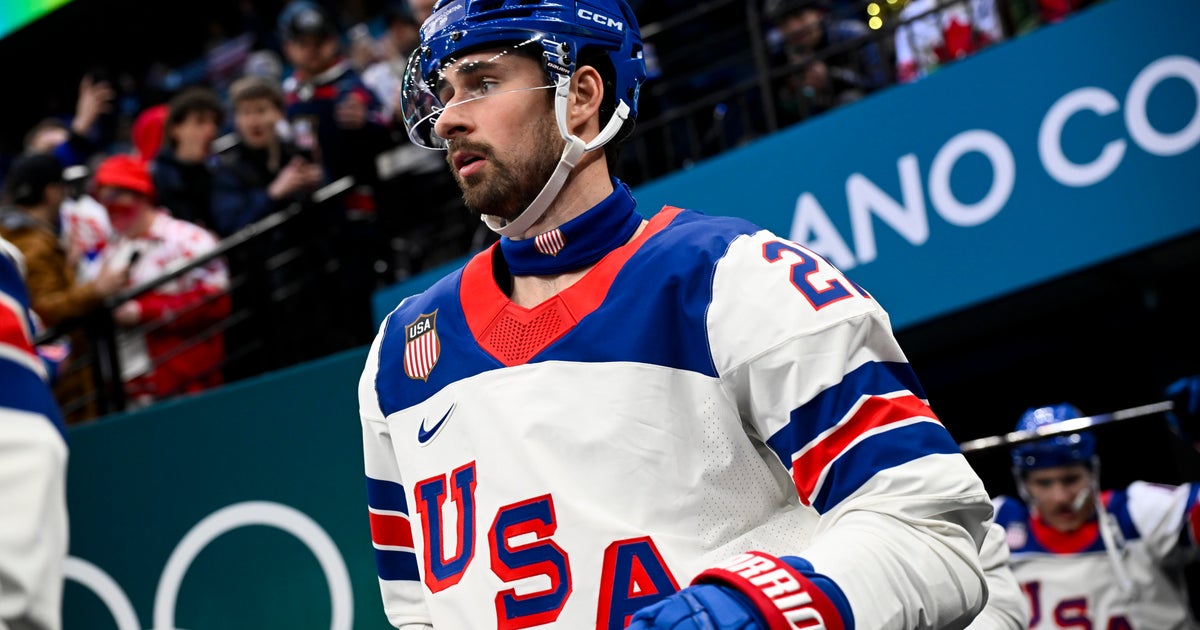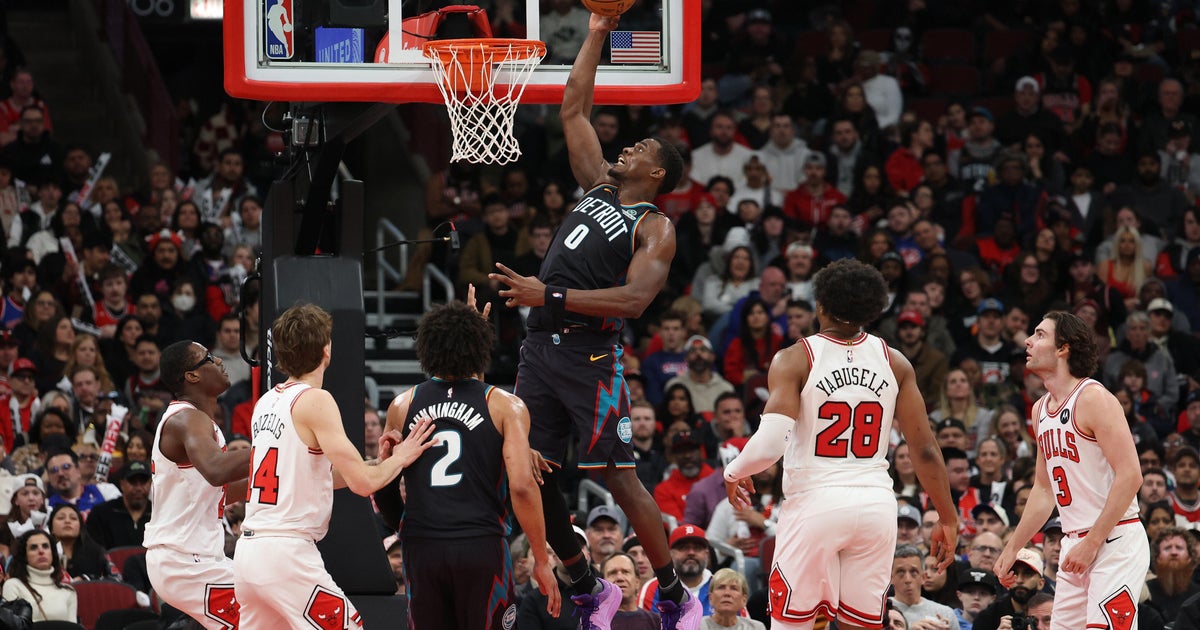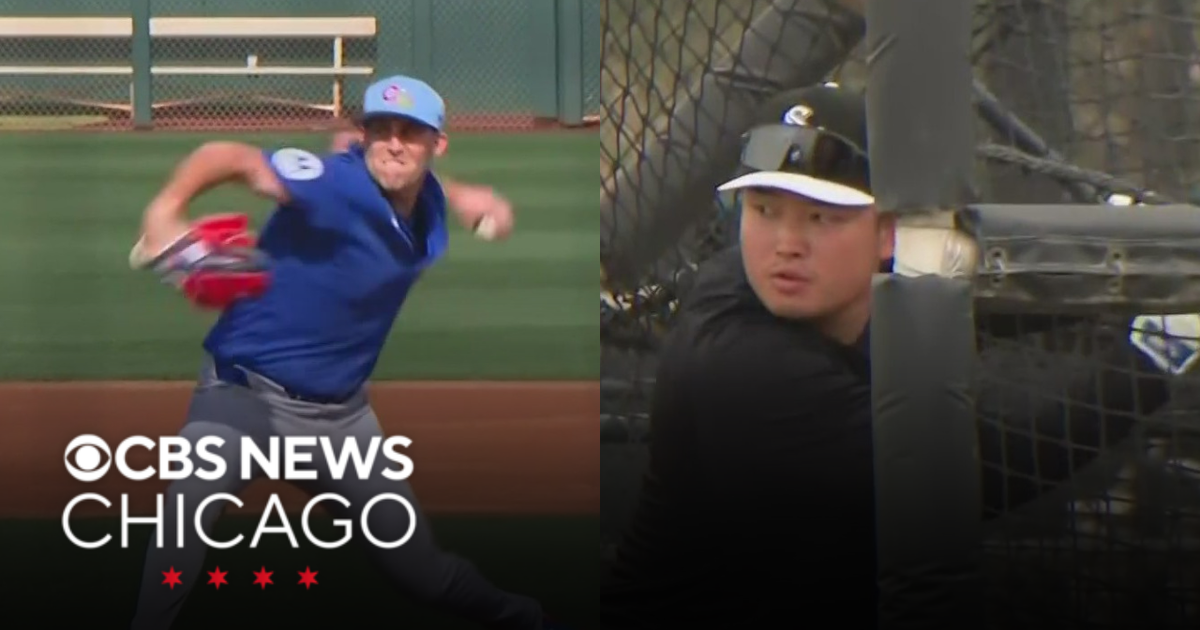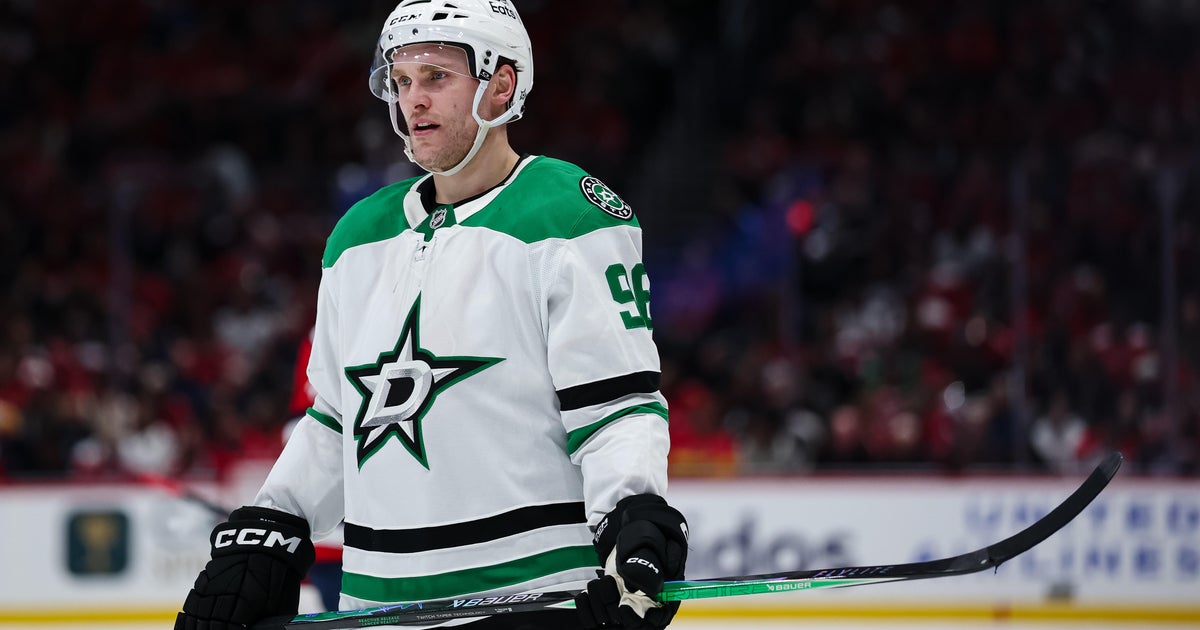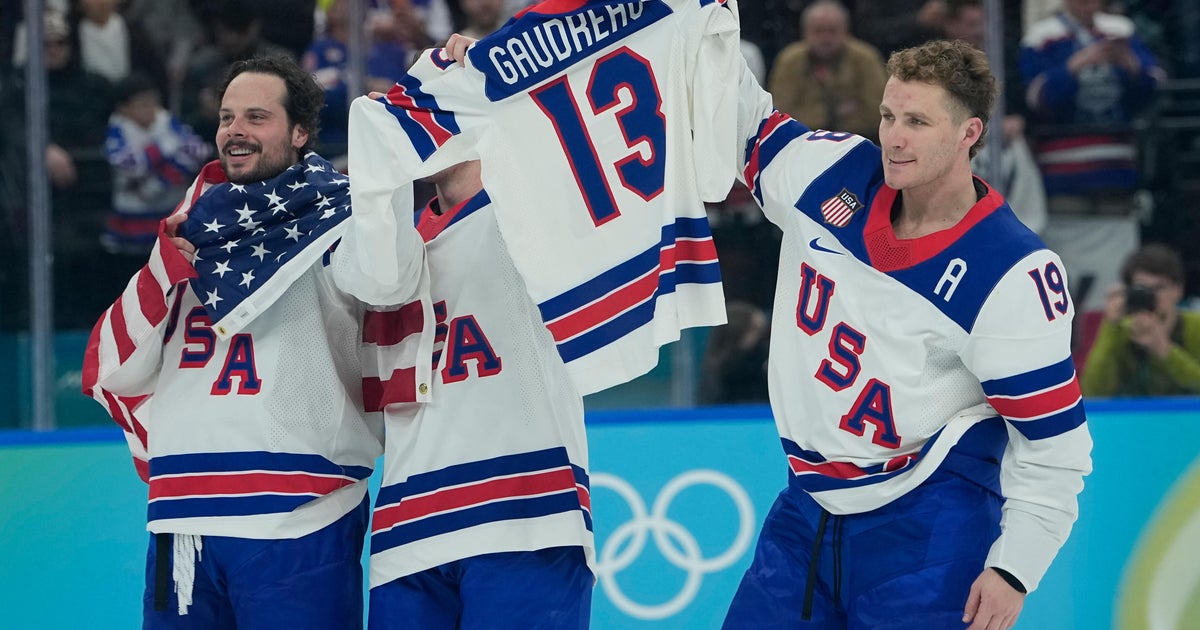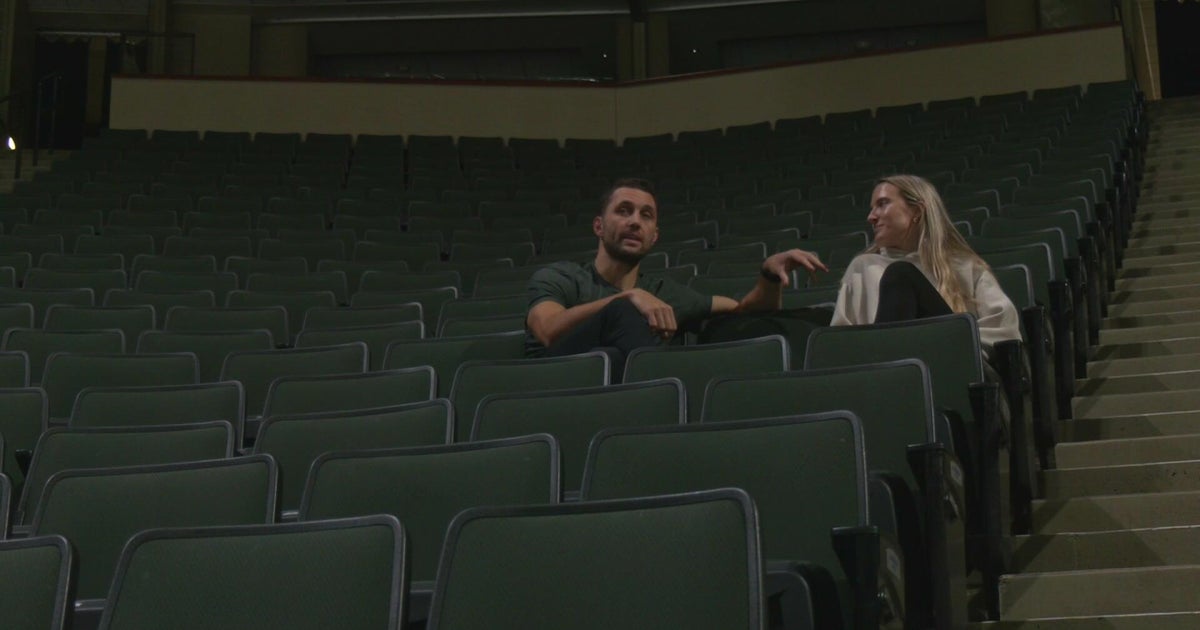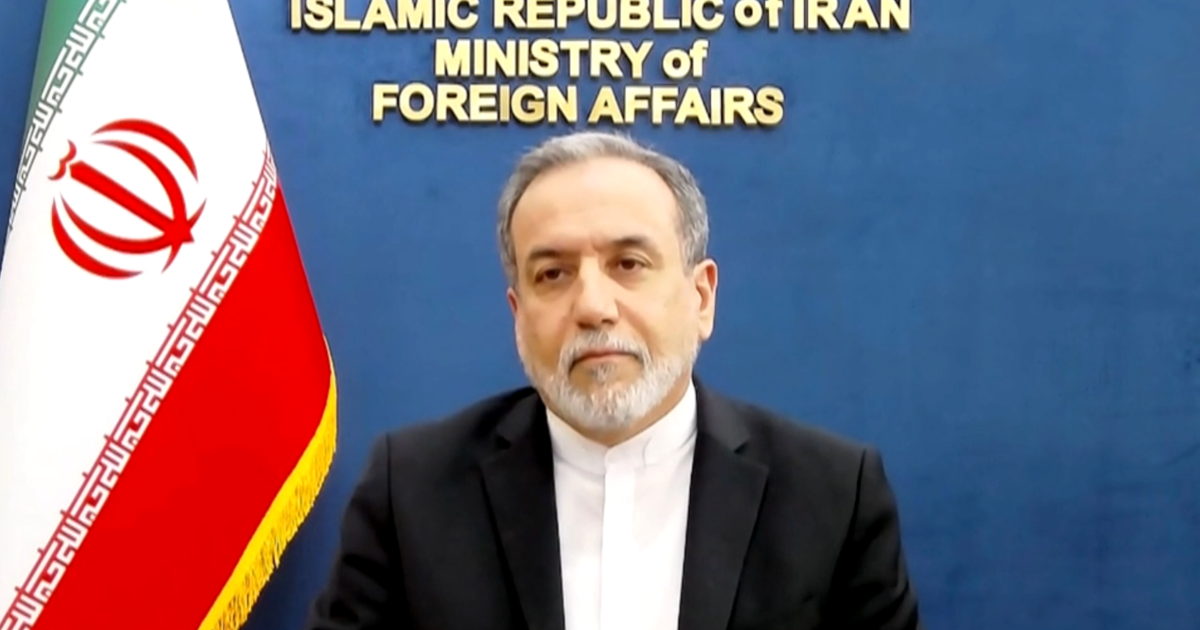Optimism Turns To Despair As NHL Talks Break Off
IRA PODELL,AP Sports Writer
NEW YORK (AP) — Donald Fehr thought he and the hockey players he leads were close to a deal to save the season. The NHL said not so fast, and then took away everything that created all the optimism in the first place.
When the 82nd day of the lockout was over, it was hard not to think the sides were thrown back to the very start of the fight. The problem is this is not the summer or even October. It's December, and there isn't much time left to reach the elusive deal and get back on the ice.
Most of Thursday, NHL negotiators waited for the players' association to wrap up internal discussions and get back to them regarding a proposal the league made Wednesday night. Owners greatly increased the amount of dollars they were willing to pay on the "make-whole" provision to compensate players in transitioning to the new collective bargaining agreement.
But that price came with a cost: Three conditions the NHL required the players to agree to if they wanted the influx of funds. The league wasn't looking to negotiate on those points on Thursday. It wanted a yes or no answer.
When management didn't get it, negotiators got up after only an hour together and left.
Fehr didn't take that as a negative response when he stood in front of a large throng of reporters in a Manhattan hotel and proclaimed that agreements had been all but reached on key issues, and a full deal could be reached in short order.
"If we can get a positive response and conclude this, hopefully it doesn't take long," Fehr said.
Then things took a wild and unprecedented turn.
While players were talking to reporters, they were told to return to the podium where they had flanked Fehr moments before. Word spread that Fehr was coming back to speak again, and when he did, the tone and the news were nowhere near as hopeful.
"There has been a development. It's not a positive one," he said. "We have been advised in a voice mail message that the moves the players made were not acceptable. There was no reason to stay around tonight or tomorrow, that they would be in touch. And that something — everything is off the table.
"We don't know what that means."
They would soon find out when NHL Commissioner Gary Bettman and deputy commissioner Bill Daly took Fehr's place at the podium and gave their side of the story. Three news conferences in the span of an hour turned the talk from whether there could be a deal in days to conversations questioning whether an agreement could be made at all.
"I find it almost incomprehensible he did that," the visibly angry Bettman said of Fehr's positive spin. "I am disappointed beyond belief that we are where we are. I need to take a deep breath and try to regroup."
Hot-button topics such as the "make-whole" provision on existing contracts not only weren't settled, but are no longer being offered by the league. Forget that owners were willing to pay up to $300 million to cover the costs, now Bettman is saying the entire concept is off the table — along with everything else the league proposed during the previous two days of marathon talks.
When the NHL agreed to increase its offer of payments from $211 million, it was part of a proposed package that required the union to agree to three nonnegotiable points. The players' association accepted the raise, but then made counterproposals on the issues the league stated had no wiggle room.
"We put 100 million dollars on the table and it was received with silence," Bettman said of the union's response to the offer Wednesday night.
The NHL wants to limit personal player contracts to five years, seven for a club's own player, and has elevated the issue to the highest level of importance.
"It's the hill we will die on," Daly said.
The union countered with an offer of an eight-year maximum length with the variable in salary being no greater than a 25 percent difference between the highest-paid year of the deal and the lowest.
The other NHL demands are a 10-year term on the new agreement, with a mutual opt-out option after eight years, and no compliance buyouts or caps on escrow in the transition phase to the new structure. The union presented an offer of an eight-year deal with a reopener after six.
"The take or give or bottom line on all this is it appears that the union is suggesting because we made substantial movements in certain areas that we're close to a deal," Bettman said. "Those moves were contingent on the union specifically agreeing on other things, which while the union may have moved toward, didn't agree to."
Bettman added that the six owners involved with the negotiations were taken aback by the players' reaction to what the NHL felt was a major concession. As soon as the players wanted to negotiate the corresponding demands, the NHL felt it had nothing left to talk about.
"They knew there was a major gulf between us and yet they came down here and told you we were close," Daly said.
Fehr vehemently disputed that assessment and stuck to his opinion that the sides really aren't far apart, saying they are "clearly very close if not on top of one another."
The sides won't meet again before Saturday at the earliest. While Bettman insisted that a drop-dead date for a deal that would preserve a season with "integrity" hasn't been established — even internally — clearly there isn't a lot of time to work out an agreement.
"I'm surprised. We feel like we moved in their direction," Pittsburgh Penguins star Sidney Crosby said.
The 2004-05 season was lost before the players' association accepted a deal that included a salary cap for the first time. While no major philosophical issues such as that exist now, the sides don't appear ready to come to an agreement.
"It looks like this is not going to be resolved in the immediate future," Fehr said.
A 48-game season was played in 1995 after a lockout stretched into January. Bettman said he wouldn't have a season shorter than that.
Union special counsel Steve Fehr was stunned by the NHL's quick rejection of the players' offer. He missed Daly's call that came during Donald Fehr's initial news conference.
"Not only is it unusual, I would be hard-pressed to think of anything comparable in my experience," he said of the instant rejection.
Talks resumed Tuesday night with owners and players in the room, and Bettman and Donald Fehr on the outside. It sparked what seemed to be the most optimistic developments in the lockout. But the tenor began to change Wednesday, and the discourse erupted Thursday.
"The sense of optimism almost inexplicably disappeared Wednesday afternoon after such a good day Tuesday," Bettman said.
When the players suggested Wednesday night that they wanted Donald Fehr to rejoin the negotiations Thursday, the NHL informed them that his inclusion could be a deal-breaker.
"We thought we were getting close. There was definitely movement toward each other," Winnipeg Jets defenseman Ron Hainsey said. "As confident as some of us players are in the issues, we cannot close deals. I'd love to think I could, we cannot."
Donald and Steve Fehr were in Thursday's session, as were Daly and lead league counsel Bob Batterman.
Steve Fehr and a number of players stood in the back of the room with arms folded as Bettman and Daly presented the league's position Thursday.
There were already signs the process was breaking down earlier when the union requested that federal mediators rejoin the discussions. Mediators previously were unsuccessful in creating a breakthrough after two days of discussions last week.
"What we got today, quite frankly and disappointingly, missed the mark," Daly said. "For the union to suggest somehow we are close, is cherry picking and it's unfortunate."
The owners who joined the process this week expressed their disappointment, too.
"Regrettably, we have been unable to close the divide on some critical issues that we feel are essential to the immediate and long-term health of our game," Winnipeg Jets chairman Mark Chipman said in a statement released by the NHL. "While I sense there are some members of the players' association that understand our perspective on these issues, clearly there are many that don't."
The sides are trying to avoid another lost season. The NHL became the first North American professional sports league to cancel a full year because of a labor dispute back in 2005. The deal reached then was in place until this September, and the lockout was enacted when it expired.
"While trust was built and progress was made along the way, unfortunately, our proposal was rejected by the union's leadership," Toronto Maple Leafs minority owner Larry Tanenbaum said in a statement. "My love for the game is only superseded by my commitment to our fans, and I hold out hope we can soon join with our players and return the game back to its rightful place on the ice."
All games through Dec. 14, along with the New Year's Day Winter Classic and the All-Star game, have been wiped off the schedule.
(© Copyright 2012 The Associated Press. All Rights Reserved. This material may not be published, broadcast, rewritten or redistributed.)
